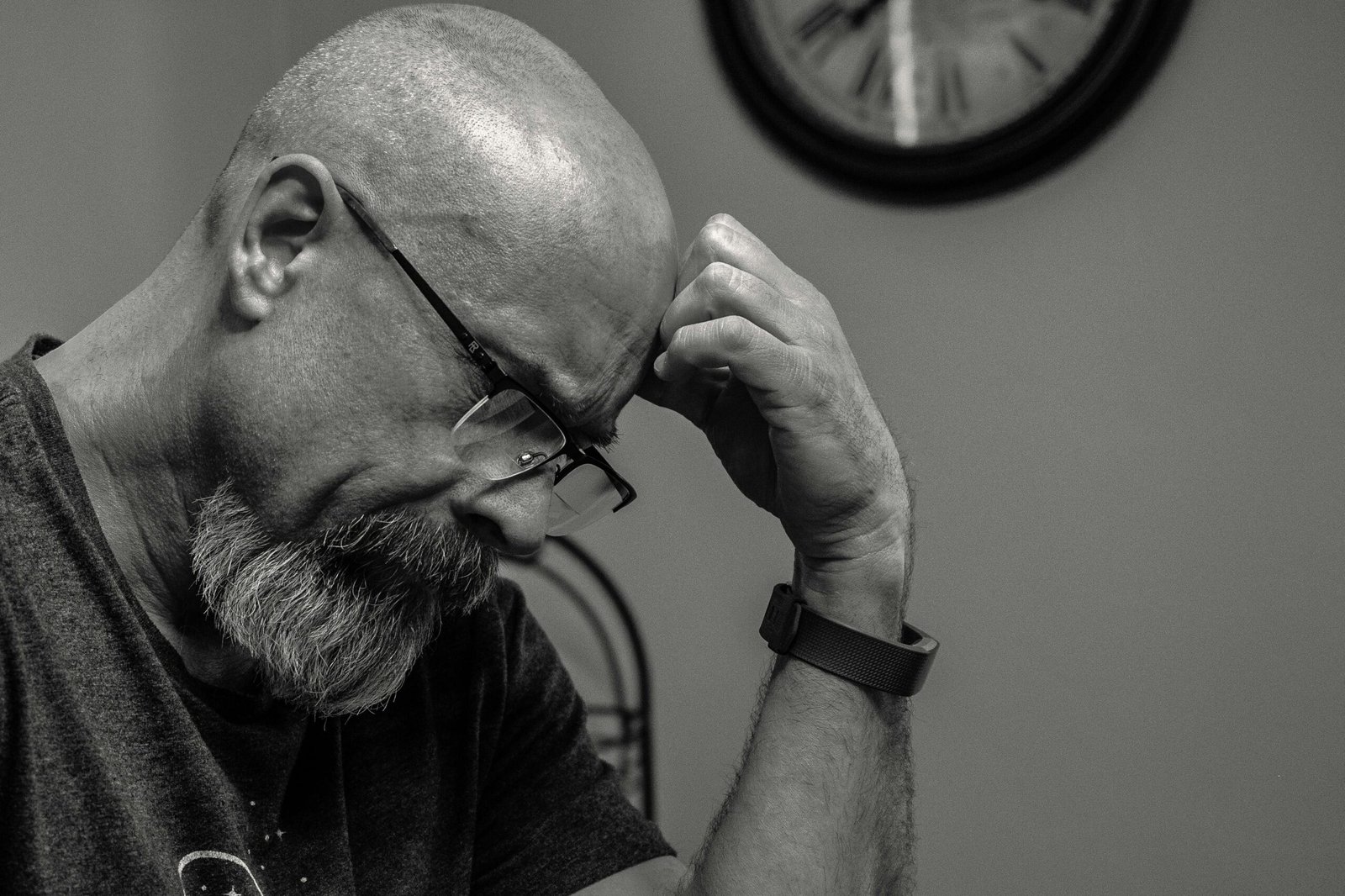Mental health plays a vital role in overall well-being, yet recognizing when to seek help can be challenging. Mental health struggles often go unnoticed or dismissed until they begin to interfere with relationships, work, or physical health. Seeking support from a licensed professional isn’t a sign of weakness, it’s a proactive step toward healing and self-care.
Whether someone is experiencing subtle depression symptoms and signs or navigating a complex mental health condition, understanding the right time to talk to a professional can prevent worsening symptoms and promote long-term recovery.
Understanding Mental Health Challenges
Mental health issues affect mood, thinking, and behavior. These challenges can range from mild stress and anxiety to severe depression and psychotic disorders. While everyone experiences emotional ups and downs, persistent or severe symptoms should not be ignored.
Mental health disorders include a wide variety of conditions, such as:
- Depression
- Anxiety disorders
- Bipolar disorder
- Post-traumatic stress disorder (PTSD)
- Obsessive-compulsive disorder (OCD)
- Eating disorders
- Personality disorders
Early detection and intervention are critical. Recognizing the signs early can help individuals receive timely support, proper diagnosis, and after talk to a professional, access to effective treatments such as:
Common Misconceptions That Delay Getting Help
Several myths or misconceptions can delay people from seeking professional help, and understanding these misconceptions is key to making a timely decision.
- “It’s not serious enough to see a therapist” – Many people assume that if their problems aren’t “severe,” therapy isn’t necessary. However, even mild symptoms of depression, anxiety, or stress can benefit from early intervention.
- “Therapy is only for people with severe issues” – Some believe therapy is reserved for individuals with severe mental health disorders, but therapy is just as beneficial for managing everyday stress and life’s challenges.
- “It’s a sign of weakness” – There’s still stigma around mental health in many communities, with some perceiving reaching out for help as a sign of weakness. In reality, seeking help is a sign of strength and self-awareness.
Addressing these misconceptions early can prevent delayed care and provide a path toward timely support.
Emotional and Behavioral Signs You Shouldn’t Ignore
Below are common depression symptoms and signs as well as general mental health warning signals that suggest it may be time to speak with a professional.
Below are common depression symptoms and signs as well as general mental health warning signals that suggest it may be time to speak with a professional.
1. Persistent Sadness or Hopelessness
Prolonged sadness is one of the hallmark signs of depression. It’s more than just feeling down – it’s an overwhelming emotional state that doesn’t go away with time. This can impact your outlook on life and ability to engage with the world around you.
- Feeling empty or numb most days
- Crying frequently without a clear reason
- A pervasive sense of gloom or despair that doesn’t improve
- Believing things will never get better
- Expressing suicidal thoughts or feelings
2. Loss of Interest or Pleasure in Activities
When everyday activities that once brought joy now feel meaningless, it may signal something deeper. This sign can be particularly distressing, as it often causes people to pull away from things that previously helped them feel fulfilled.
- No longer enjoying hobbies, relationships, or work
- Avoiding activities that once brought joy
- Isolating from friends and family
- Loss of interest in sex or intimacy
- Lack of motivation to engage in daily routines
3. Sudden Changes in Sleep Patterns
Sleep is closely tied to mental well-being. Disturbances in your sleep cycle – whether you’re sleeping too much or not at all – can worsen emotional health and affect your ability to function.
- Difficulty falling asleep (insomnia)
- Waking up too early or throughout the night
- Sleeping too much (hypersomnia)
- Feeling tired even after adequate sleep
- Nightmares or disturbing dreams that affect rest
4. Appetite or Weight Fluctuations
Changes in appetite and weight – especially when not related to dieting or health goals – may be a reflection of psychological distress. Your relationship with food often mirrors your emotional state.
- Rapid weight loss or gain without dieting
- Cravings for unhealthy comfort foods
- Lack of interest in food or eating altogether
- Emotional eating triggered by stress, sadness, or anxiety
5. Fatigue or Low Energy
Mental health disorders can drain your energy and leave you feeling exhausted, even after a full night’s rest. This isn’t just regular tiredness – it’s a deep, physical sense of fatigue that makes everyday activities feel overwhelming.
- Feeling physically drained or sluggish
- Struggling to get out of bed
- Lack of energy to complete daily tasks
- Constantly feeling tired despite sleep
- Relying heavily on caffeine or stimulants
6. Difficulty Concentrating or Making Decisions
Cognitive impairments can be just as debilitating as emotional symptoms. Difficulty focusing, remembering details, or making decisions can affect productivity and self-esteem.
- Trouble focusing on tasks at work or school
- Frequently losing track of conversations or time
- Struggling to make simple decisions
- Mental fog or confusion
- Forgetfulness that interferes with responsibilities
7. Excessive Worry or Anxiety
While occasional worry is normal, constant and overwhelming anxiety can point to a mental health condition. These symptoms often interfere with relationships, work performance, and peace of mind.
- Constant fear or dread without a clear cause
- Overthinking every situation or outcome
- Feeling restless, tense, or on edge
- Panic attacks or shortness of breath during stress
- Avoiding social situations due to fear of judgment
8. Feelings of Worthlessness or Guilt
When negative self-beliefs take over, it can trap individuals in a cycle of shame and hopelessness. These thoughts are often irrational and unrelenting, and they can lead to deeper depressive episodes.
- Internal thoughts of being a burden to others
- Fixating on past mistakes or perceived failures
- Harsh self-criticism or negative self-talk
- Believing one is undeserving of love or success
- Chronic self-doubt
9. Increased Irritability or Anger
Not all signs of depression or mental illness look like sadness. Some people exhibit increased irritability, frequent anger, or unpredictable mood swings – especially if these are uncharacteristic behaviors.
- Becoming frustrated over minor issues
- Lashing out at loved ones or coworkers
- Feeling emotionally out of control
- Impulsive or aggressive behavior
- Short temper and frequent arguments
10. Thoughts of Death or Suicide
This is the most urgent sign that immediate help is needed. Suicidal thoughts or behaviors are a medical emergency and should never be ignored. If you or someone you know is in immediate danger, please call 988 or go to the nearest emergency room.
- Expressing the desire to die or disappear
- Making plans for self-harm or suicide
- Giving away belongings or writing goodbye notes
- Researching methods of self-harm online
- Feelings of hopelessness that life isn’t worth living
If any of these symptoms are present – especially suicidal ideation – it’s essential to seek professional help immediately.
Physical Symptoms That May Indicate Mental Health Struggles
Mental health conditions often present with physical symptoms that are just as concerning as emotional ones.
1. Unexplained Aches and Pains
- Headaches, backaches, or joint pain without medical cause
- Stomach problems, nausea, or indigestion
- Muscle tension or soreness
- Chest tightness or palpitations
2. Changes in Sexual Desire
- Loss of libido or interest in intimacy
- Erectile dysfunction or other sexual performance issues
- Feeling emotionally disconnected during intimacy
3. Weakened Immune System
- Frequent colds or infections
- Delayed recovery from illness
- Chronic fatigue syndrome symptoms
4. Neglecting Personal Hygiene
- Skipping showers or grooming routines
- Wearing the same clothes for several days
- Avoiding health check-ups or dental care
5. Substance Abuse
- Relying on alcohol or drugs to cope
- Prescription drug misuse
- Increasing tolerance or dependence on substances
- Secretive behavior related to substance use
How Talking to a Professional Can Help
Talking to a mental health professional can provide validation, perspective, and support. Often, one of the most significant benefits of therapy is simply having a safe space to express your feelings without judgment. A professional can offer guidance on managing emotions, setting realistic goals, and navigating life’s challenges.
Additionally, a mental health professional can provide coping tools and behavior strategies that will help you manage stress, anxiety, and depression more effectively. These may include cognitive-behavioral therapy (CBT), mindfulness practices, and stress reduction techniques.
For those experiencing more severe mental health challenges, like depression or PTSD, a diagnosis and treatment plan will be created. In some cases, medication may be necessary to help manage symptoms. For example, medications such as Lexapro or Remeron are commonly prescribed to help regulate mood and ease symptoms of depression and anxiety.
What Kind of Help Do You Need?
Not all mental health professionals are the same. Understanding the differences can help you choose the right professional for your needs.
- Therapist or Counselor – A therapist or counselor provides talk therapy (psychotherapy) to help you process emotions, thoughts, and experiences. They focus on providing emotional support and coping strategies.
- Psychiatrist – A psychiatrist is a medical doctor who specializes in diagnosing and treating mental health conditions. They can prescribe medications like Lexapro, Remeron, or Spravato, which may be beneficial if your condition requires pharmacological intervention.
Knowing when to seek talk therapy versus medication is essential. For some, therapy alone is enough, but for others, medication may be a necessary part of the treatment plan.
Why Klinic Makes Getting Help Simple
Klinic is a leading online platform that makes accessing therapy and psychiatric support easy and discreet. With licensed professionals providing therapy and psychiatric care online, you can speak to a therapist or psychiatrist from the comfort of your home.
Klinic removes the barriers to accessing mental health care by offering easy scheduling, no insurance hassles, and discreet medication prescriptions when appropriate. Whether you need a quick consultation or a long-term treatment plan, Klinic offers safe, affordable, and judgment-free care.
Final Thoughts: Getting Help Is a Sign of Strength
Taking the step to reach out for mental health support is not a sign of weakness – it’s a sign of strength. Acknowledging that you need help and acting on it early can make all the difference in how quickly and effectively you can recover.
Support is just a click away with Klinic. Whether you need therapy, medication, or a combination of both, Klinic offers a discreet, convenient, and effective way to take care of your mental health. Don’t wait – your mental health deserves attention today.







